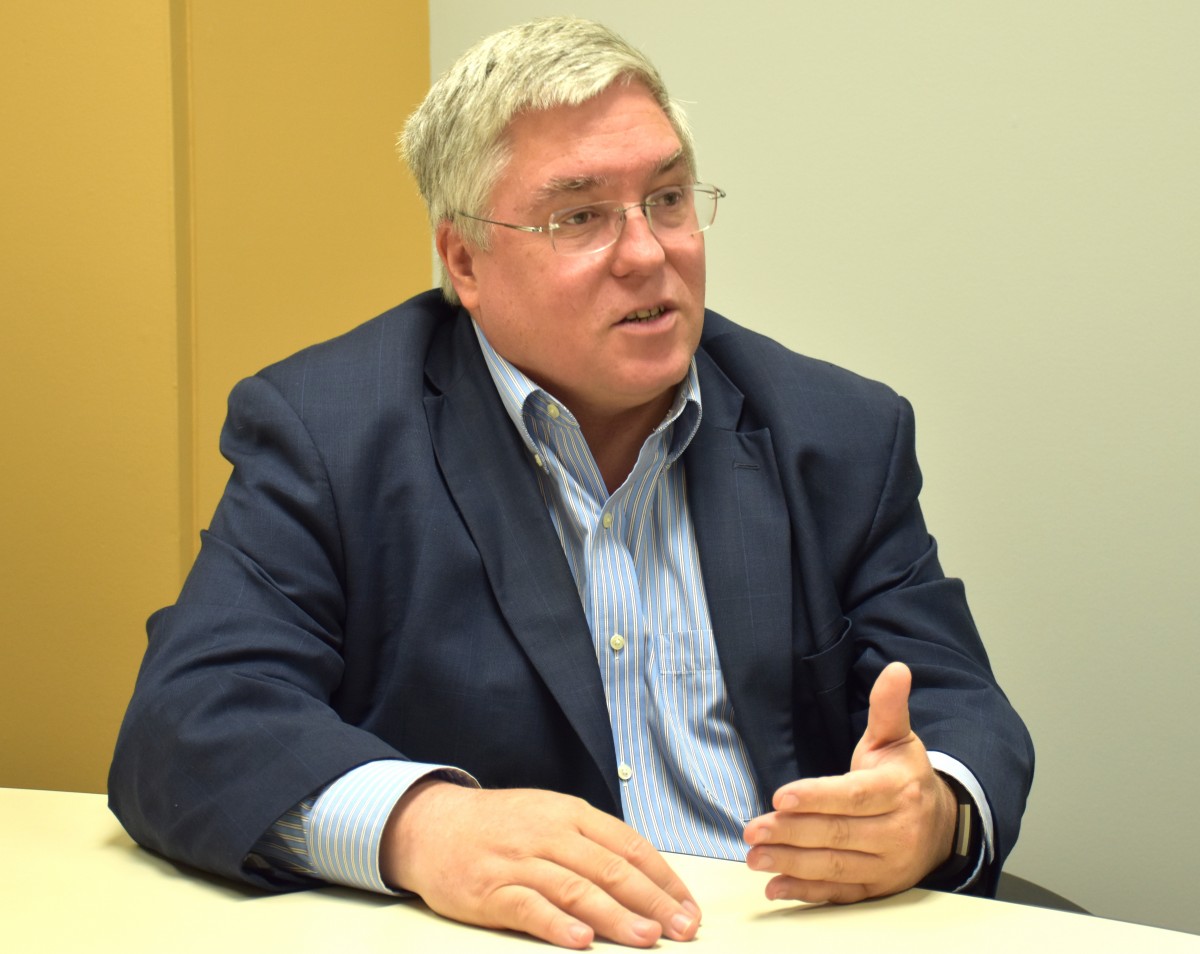MORGANTOWN — Attorney General Patrick Morrisey stopped by The Dominion Post office Friday afternoon, in his way from Charleston to his Eastern Panhandle home, to talk about some of the COVId-19 issues his office has been dealing with.
The interview was conducted as a safe social distance – well more than 6 feet apart – with no handshakes or elbow bumps.
The bulk of calls coming in are consumer protein complaints, he said. With the early hoarding, residents are concerned about supply line integrity and continued shortages. “For the most part stores are getting restocked on a pretty consistent basis,” which is helping avert continued hoarding.
They receive frequent price gouging complaints, he said, and investigate every one. They have sent out cease-and-desist letters to businesses and subpoenas to investigate allegations.
State price gouging law, he said, took effect on Feb. 24 when the governor issued his emergency declaration. Prices may not spike above 10% of the price at the effective date.
Morrisey said consumers who see prices going above that or suspect gouging should call his office at l 800-368-8808 or file a complaint at wvago.gov.
When they investigate he said, they try to look beneath the surface. Sometimes retailers are paying jacked-up prices to their suppliers and passing those along. In those cases, the retailer is not price gouging, but consumers should file complaints for the office to investigate.
He also urges caution about scammers taking advantage of the pandemic. There are some utility scams out there.
Utility companies told him they would not suspend service for unpaid bills during the pandemic, he said. But scammers are contacting consumers, posing as utilities and threatening to shut off service in order to obtain personal information.
“These scammers are going to come up with every conceivable way to try to rip you off during this difficult time.” Other scammers may be sending out emails offering to get you your CARES checks faster.
Don’t give out your information to them, he said.
“We want to send a message that we’re not going to tolerate these fraudsters, these scamsters and lawbreakers during this time. We’re not going to let people take advantage of our citizens.”
With state and local governments issuing emergency declarations, such as travel restrictions, he said, his office deals daily with questions about the constitutionality of those declarations.
The governor does have broad emergency powers, Morrisey said, but citizens’ constitutional rights haven’t been eliminated and have to be accounted for at all times. So they try to weigh in on every declaration.
“That is a very real concern. People are rightfully worried that there’s going to be an erosion of their civil liberties. We’re going to do our best make sure that the las are faithfully interpreted.”
Questions were raised when the governor changed the primary election date, Morrisey said. But they considered the powers of the governor and secretary of state and felt the change was on solid legal ground. It actually served to enhance voting rights by allowing more people to participate.
Another constitutional issue is corporate worship. On Friday, the American Humanist Association sent out a release urging state and local governments to prevent religious congregations from meeting during the pandemic, especially in view of Easter weekend.
The association named several states that have closed essential business but have special exceptions for religious services: West Virginia Florida, Louisiana, Tennessee, New Hampshire, Delaware, Michigan and Mississippi. It said some church leaders in Louisiana, Texas, Florida and California plan ot hold services despite the public health concerns and government urgings.
Morrisey said his office and the state as a whole is urging people to practice social distancing in all areas. “We also know that a citizen’s right to worship is protected and no declaration can wipe that away.
Many churches are considering alternatives, such as Facebook Live, for holding services while practicing social distancing.
“These are very tough issues because we have to remember that we live in a constitutional system where certain rights are enumerated and can’t be taken away,” Morrisey said. “Your rights are going to be protected by this attorney general. At the same time, just because you have the right to do something doesn’t mean you should always exercise it at all times.”
Tweet David Beard @dbeardtdp Email dbeard@dominionpost.com




